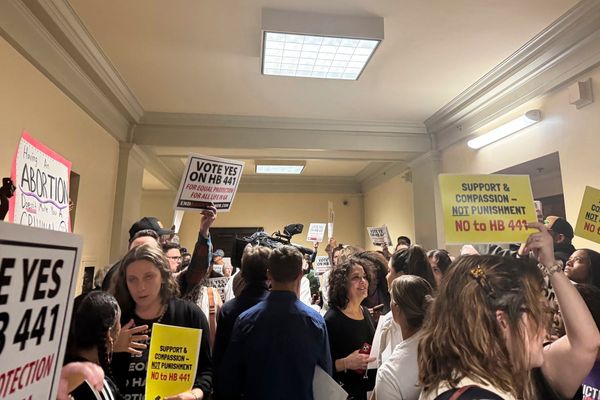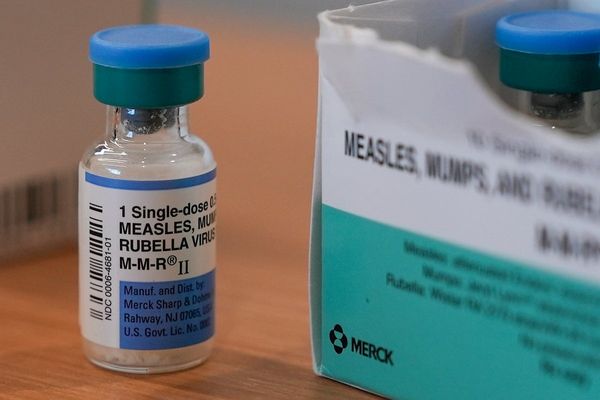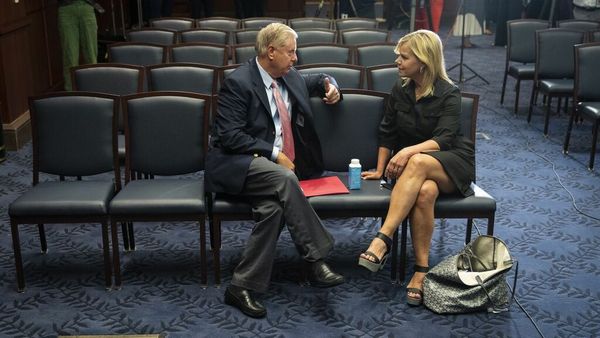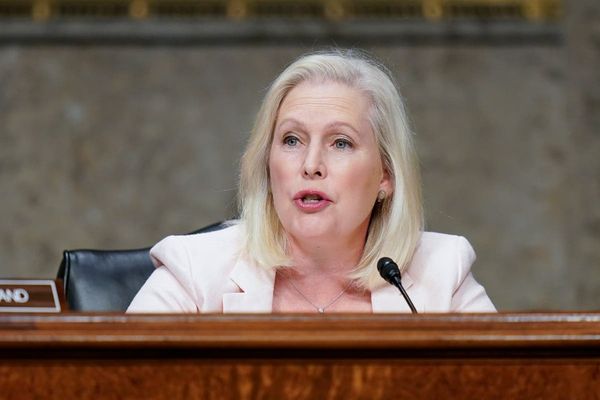Congress passed landmark workplace legislation yesterday, prohibiting companies from forcing certain kinds of employee lawsuits into arbitration, or private courtrooms outside public view.
- But don't expect companies to abandon this practice — widely criticized for favoring employers, and for depriving workers and consumers of their right to a jury trial. The bill, which President Biden is expected to sign, leaves a lot out.
Why it matters: Thing is, the legislation is a big deal — the first significant Congressional action stemming from the MeToo movement, as Sophia Cai and I reported. But it's also not a big deal: It only covers sexual harassment and sexual assault cases.
- Companies send all kinds of matters to these secretive courts — including civil rights claims like race discrimination, pregnancy discrimination, and wage theft.
- A separate bill that would ban more types of cases from forced arbitration didn't have a chance with Republicans, who only supported the narrower bill.
"I expect corporations to continue to use forced arbitration against their workers anytime they can," said Julia Duncan, senior director of government affairs at the American Association for Justice, a trial lawyer group.
How it works: Simply put, companies use private arbitration to stay out of the public court system. That keeps these cases — often public relations nightmares — out of the public's view and away from sympathetic juries.
- Typically, clauses prohibit employers or customers from joining together in class actions, which discourages individuals from even coming forward with complaints.
- Many workers don't even know they agreed to forced arbitration, since it's often baked into employment contracts.
- You'll also find these agreements buried in the fine print of your credit card paperwork, cell phone contract, student loan documents, more.
State of play: More than half of nonunion, private sector employees — or about 60 million workers — were subject to mandatory arbitration as of a 2018 report from the progressive Economic Policy Institute.
Most cases never even make it in front of an arbitrator. If the cases do, employers are more likely to win, according to widely cited research. For two big reasons:
- The discovery process is far more constrained than in public court, so plaintiffs have less ability to gather evidence.
- Cases are heard by arbitrators who are often retired lawyers who've spent their careers defending employers. They're hired by the two main private arbitration companies, which are paid by employers (repeat customers) for their services. (These companies say the process is unbiased.)
- Damages are typically lower, so employees aren't able to always find a lawyer working on retainer to represent them — and so can't afford the process.
The impact: For years women and men who've been harassed at work, and complained about it, were silenced by this process, Gretchen Carlson, widely credited for pushing this legislation through, told Axios earlier this week.
- The new law should bring these stories to light, allow harassment victims to seek justice and force companies to figure out ways to keep such behaviors from flourishing.
- "That’s what we have been fighting for. The injustice men and women faced by not having the choice of making their case public," Carlson said.
The other side: In a letter to lawmakers last fall, the Chamber of Commerce argued that "arbitration is a fair, effective, and less expensive means of resolving disputes."
My thought bubble: Advocates and Democratic lawmakers say this is the first step of a process that would end forced arbitration in other realms — but it took decades for this one narrow law to finally make it through. Don't hold your breath.










